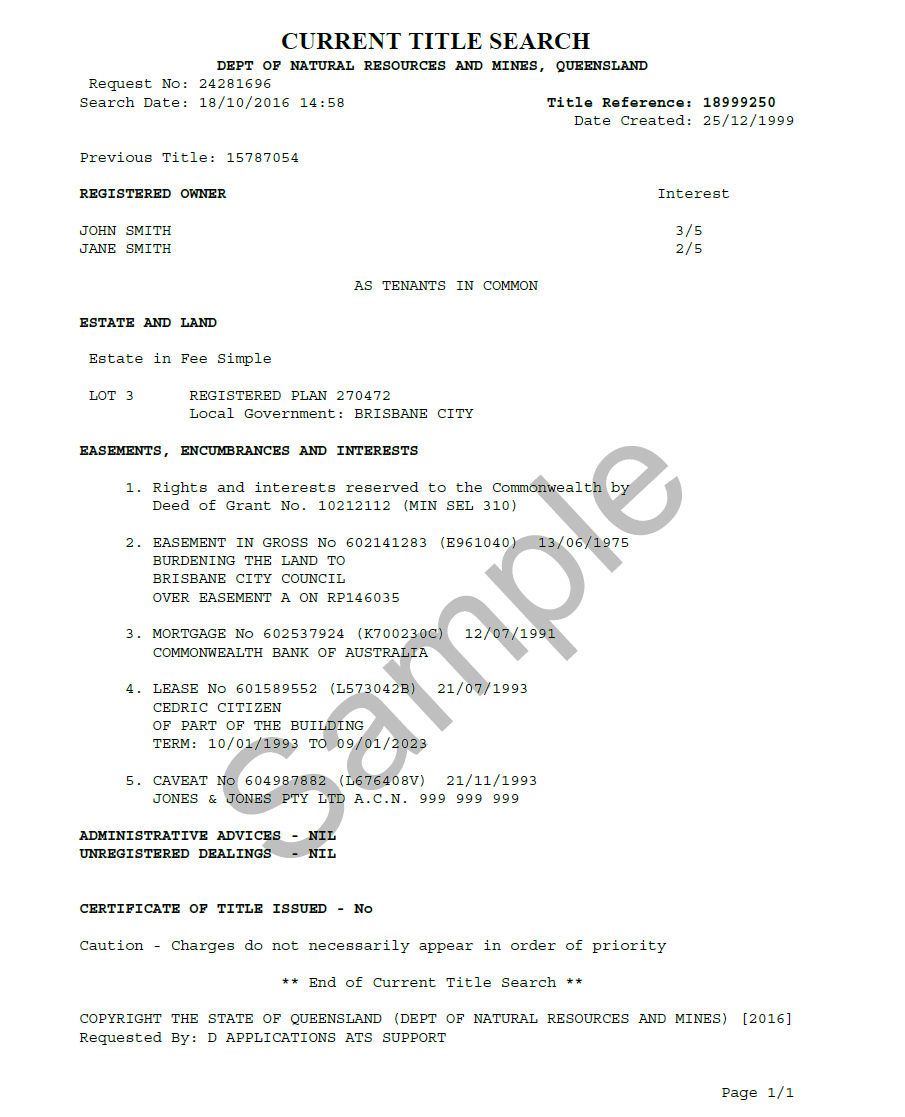
Evolution of Ownership: No More Paper Titles
In a significant change that has reshaped the landscape of property transactions, the paper Certificate of Title will no longer be required for lodging and registering land dealings starting from 1 October 2019. This revolutionary shift marks the end of an era, rendering the traditional paper Certificate of Title obsolete in the realm of property law.
In the ever-evolving world of property law and transactions, a significant change has taken place. As of 1 October 2019, the requirement for the paper Certificate of Title has been eliminated, reshaping how property dealings are conducted and registered. This article delves into the implications of this groundbreaking decision on property owners and the legal landscape.
The Paper Certificate of Title: An Overview
Understanding the Purpose
The paper Certificate of Title, often referred to as the title deed, has historically served as a tangible document providing evidence of property ownership. It included crucial details about the property, its boundaries, and any encumbrances or interests associated with it.
Importance in Property Transactions
The Certificate of Title held a central role in property transactions. It needed to be lodged and registered to validate and facilitate various dealings, such as property sales, transfers, and mortgages. The physical document was a symbol of ownership and a cornerstone of property law.
A New Era: The Abolishment of Paper Certificate of Title
Transition to Digital Records
With advancements in technology and the digitization of records, the need for physical paper documents has diminished. As of 1 October 2019, the requirement to lodge the paper Certificate of Title for property dealings has ceased. Instead, the focus has shifted to electronic records and digital systems.
Implications for Property Owners
Property owners and stakeholders must adapt to this new paradigm. While the elimination of the paper Certificate of Title streamlines processes and reduces administrative burdens, it also requires familiarity with digital platforms for lodging and registering property transactions.
The Changing Landscape of Property Transactions
Streamlined Process
The transition to digital records brings efficiency to property transactions. Dealing with electronic documents simplifies and expedites the process, making it more accessible and user-friendly for all parties involved.
Enhanced Security Measures
Digital records are often fortified with robust security measures to safeguard against fraud and unauthorized access. Encryption, authentication, and verification protocols ensure the integrity and authenticity of the information.
Understanding Digital Title Searches
The Role of Digital Title Searches
Digital title searches provide a streamlined and efficient method for accessing property information. They allow property owners, potential buyers, and industry professionals to obtaincrucial details about a property’s ownership history, encumbrances, and boundaries.
Benefits of Digital Records Digital records offer several advantages, including real-time accessibility, reduced paperwork, and the ability to conduct searches from anywhere. They empower individuals with the information needed to make informed decisions about property transactions.
Conducting Digital Title Searches: A Step-by-Step Guide
Step 1: Seek Professional Guidance
Initiate the process by seeking assistance from professionals experienced in property law. They can provide guidance on the necessary steps and documentation needed for a
successful digital title search.
Step 2:
Initiating the Search Request Begin the digital title search by submitting a request to the Queensland Government’s Titles Registry. This can often be done online, and the request will include details about the property of interest.
Step 3: Verification and Confirmation
The Titles Registry will verify your request and conduct a comprehensive search to confirm ownership rights, encumbrances, and any other relevant information. This step ensures the accuracy and authenticity of the results.
Step 4: Accessing and Storing Your Digital Title
Once the search is complete and the results are verified, you will receive access to the digital title.
It’s essential to store this document securely, using digital methods such as encrypted storage or secure cloud platforms.
Key Considerations in Digital Title
Searches
Financial
Implications
While digital title searches offer efficiency, they do come with associated costs. These may include search fees and potential professional consultation fees. It’s crucial to factor theseexpenses into your property transaction budget.
Time Frame for Results
The time required to obtain search results can vary. However, digital searches generally provide quicker results compared to traditional methods. Inquire about the expected time frame to align your expectations.
Secure Handling of Digital Titles
Digital titles contain sensitive and valuable information. Ensuring their secure storage and handling is paramount to prevent unauthorized access or loss. Employ digital security
measures to protect this vital document.
Frequently Asked Questions (FAQs)
What is a Certificate of Title?
A Certificate of Title, also known as a title deed, is a document that historically provided evidence of property ownership and details about the property’s boundaries and encumbrances.
How will property transactions change without the paper Certificate of Title?
Property transactions will become more streamlined and digitized. The reliance on physical documents will be replaced by electronic records and digital platforms.
What documents will replace the paper Certificate of Title?
Electronic records and digital certificates will replace the traditional paper Certificate of Title for property transactions.
Is the transition to digital records mandatory?
Yes, the transition to digital records is mandatory as of 1 October 2019. All property dealings will be conducted through electronic means.
What happens to existing paper Certificates of Title?
Existing paper Certificates of Title remain valid but are no longer required for lodging property transactions. Owners can retain them for historical or sentimental purposes.
Are there any costs associated with digital title searches?
Yes, digital title searches come with costs, including search fees and potential professional consultation fees. Inquire about the specific costs involved before proceeding.
How long does it take to receive search results?
The time frame for receiving search results can vary. Digital searches generally provide quicker results, but inquire about the expected turnaround time for your specific search.
What happens if I lost my paper title deed?
As paper title deeds are no longer valid, if you have miss placed your title deed contact your solicitor or Conveyancer to obtain a digital copy.
The abolishment of the paper Certificate of Title signifies a transformative leap in property transactions. Embracing digital records streamlines processes, enhances security, and propels property law into the digital age. As property owners and stakeholders adapt to this new era, they can navigate transactions with greater efficiency and confidence.
This is general advice only, for specific legal advice speak with your legal representative.




